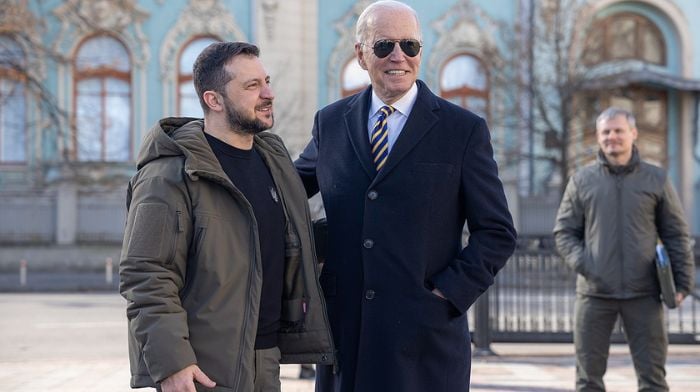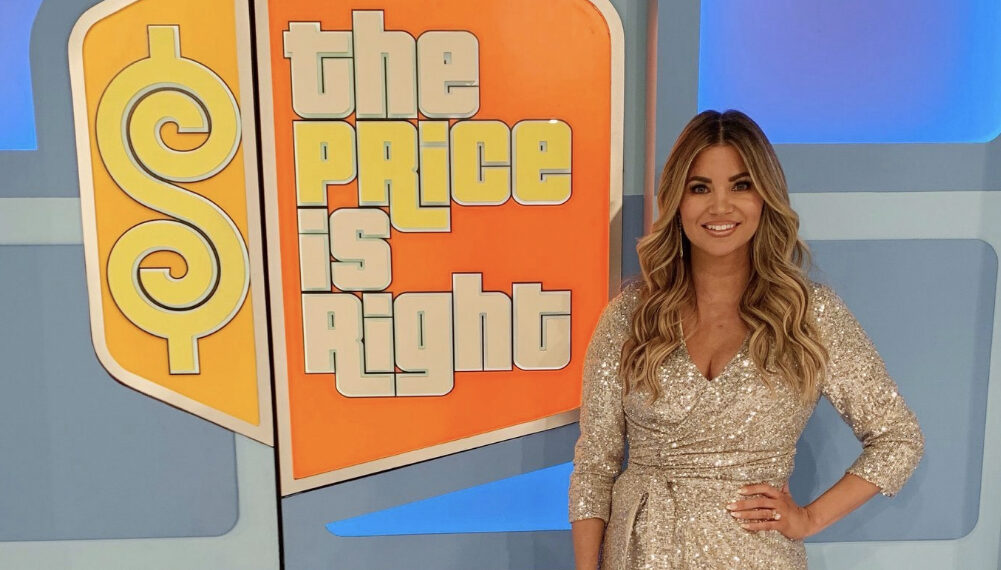Blue Beetle flew into theaters on Friday as the first Latino DC superhero. But the day that should have been a celebration was instead bittersweet for Gareth Dunnet-Alcocer, the credited writer of the Warner Bros. release.
Rather than taking in the milestone moment, Dunnet-Alcocer struggled with bittersweet feelings as he found himself on the picket line, waving his sign, outside the very studio that made his movie. At one point he found himself under a massive billboard emblazoned with the faces and logo of Beetle.
“I’m proud and I’m sad. I’m excited and I am afraid,” he told The Hollywood Reporter of the tumult that was brewing inside him.
Dunnet-Alcocer, who hails from Querétaro, Mexico, was one of several thousand Latino writers and actors that flexed the power of their community Friday, descending on Warners in Burbank in what observers said was one of the most active and lively moments of the strike. Traffic around the studio was snarled at times as the crowd in front of Warners’ Gate 3 occasionally spilled into West Olive Avenue. There was flashmob-style dancing, Latin-style of course, as well as plenty of music. Signs with “Don’t Make Me Get La Chancla!” and “The AMPTP Is Not Daddy, Pedro Pascal is Our Daddy!” written on them were waved high. Actors such as Edward James Olmos and Wilmer Valderrama were on hand as was SAG-AFTRA’s Duncan Crabtree-Ireland.
The union’s chief negotiator was thrilled with the turnout. “The Latino community is obviously very strongly in support of what we’re fighting for,” Crabtree-Ireland said. “Having such a strong turnout shows the energy is strong, the solidarity is strong, the member unity is strong, and that’s what’s going to win this for us.”
Said Valderrama: “It’s a beautiful moment to not only show solidarity but to show that we are here, that we’re also part of this SAG-AFTRA family that’s been here longstanding through so many decades of entertainment.”
As he walked, Dunnet-Alcocer was greeted by the occasional “Congratulations!” from other picketers who knew his Beetle work. Others may not have known him but appreciated his t-shirt with the letter CH on it, a deep cut for certain Latinos. It refers to a comedic superhero named El Chapulin and a much-seen Mexican series.
Dunnet-Alcocer said that under-represented writers, which include Latinos, feel the effects of the strike more acutely than the establishment. For one, Latino writers work less already, so any work stoppage means a deeper economic impact. And with many being immigrants, there is less of a network that can help them.
“Latino writers don’t usually come from wealth,” he said. “So that’s an extra pressure. The less economic infrastructure you have to help you survive this, it’s less chance to write and express their stories because you can’t write.”
But for him, this strike is just part of a long tradition that Latinos have shown historically, of collectivizing and protesting against more powerful forces, be it governmental or corporate.
“I think Latinos more than anyone understand the power of unions and the power of fighting,” he said. “It’s in the Latino blood. Revolution and this kind of struggle is in our DNA.”
Dunnet-Alcocer was able to tackle some of these themes with his script for Beetle. The movie stars Xolo Mariduena as young man from a working class family who discovers and connects to a powerful alien suit of armor, which brings the attention of an evil CEO who wants the technology for her own nefarious needs.
“If you see Blue Beetle, it is filled with similar ideals of working people and unity and family versus conglomerates and people who want more money,” the writer said. “We just want to work and be proud and have a decent living.”

Wilmer Valderrama with Duncan Crabtree-Ireland
Borys Kit

























































